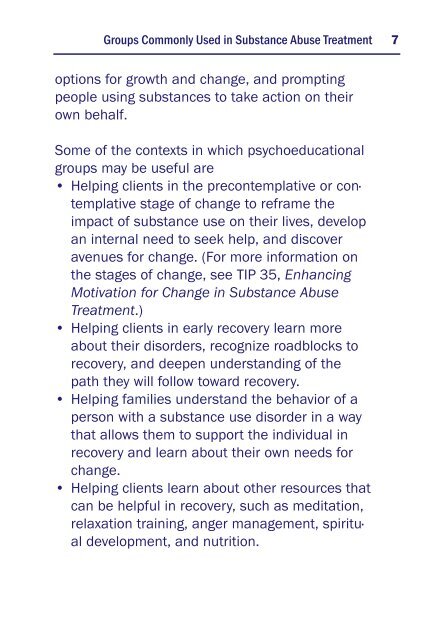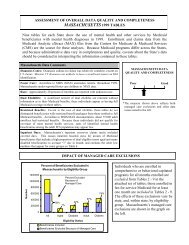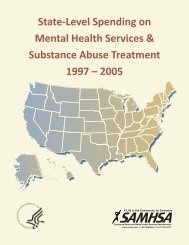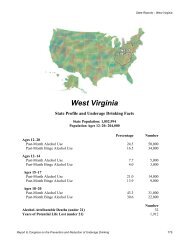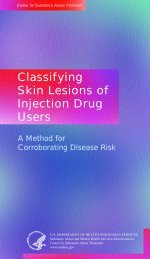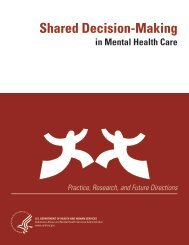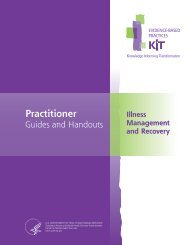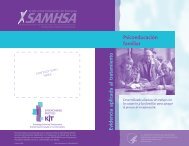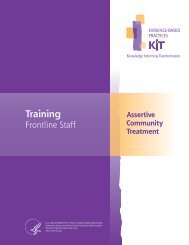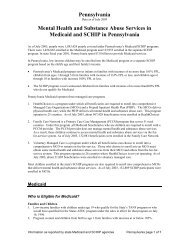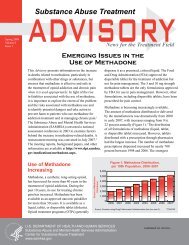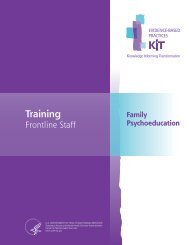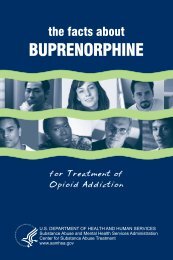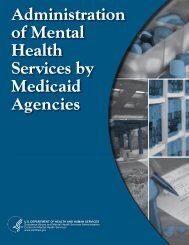Quick Guide for Clinicians - SAMHSA Store - Substance Abuse and ...
Quick Guide for Clinicians - SAMHSA Store - Substance Abuse and ...
Quick Guide for Clinicians - SAMHSA Store - Substance Abuse and ...
Create successful ePaper yourself
Turn your PDF publications into a flip-book with our unique Google optimized e-Paper software.
Groups Commonly Used in <strong>Substance</strong> <strong>Abuse</strong> Treatment7options <strong>for</strong> growth <strong>and</strong> change, <strong>and</strong> promptingpeople using substances to take action on theirown behalf.Some of the contexts in which psychoeducationalgroups may be useful are• Helping clients in the precontemplative or contemplativestage of change to reframe theimpact of substance use on their lives, developan internal need to seek help, <strong>and</strong> discoveravenues <strong>for</strong> change. (For more in<strong>for</strong>mation onthe stages of change, see TIP 35, EnhancingMotivation <strong>for</strong> Change in <strong>Substance</strong> <strong>Abuse</strong>Treatment.)• Helping clients in early recovery learn moreabout their disorders, recognize roadblocks torecovery, <strong>and</strong> deepen underst<strong>and</strong>ing of thepath they will follow toward recovery.• Helping families underst<strong>and</strong> the behavior of aperson with a substance use disorder in a waythat allows them to support the individual inrecovery <strong>and</strong> learn about their own needs <strong>for</strong>change.• Helping clients learn about other resources thatcan be helpful in recovery, such as meditation,relaxation training, anger management, spiritualdevelopment, <strong>and</strong> nutrition.


